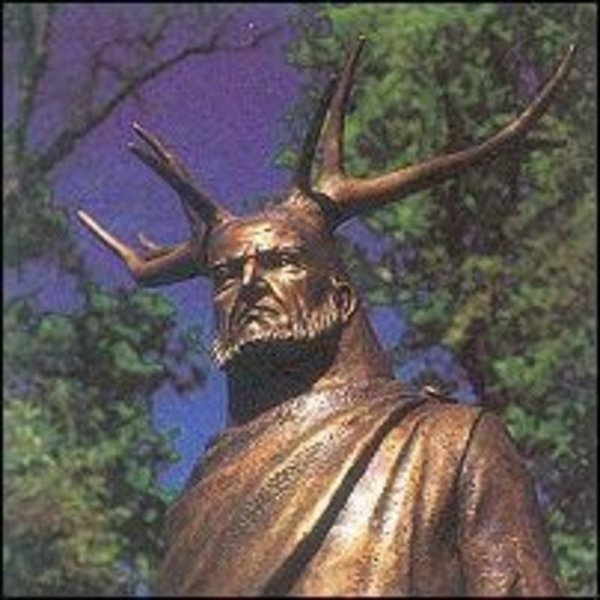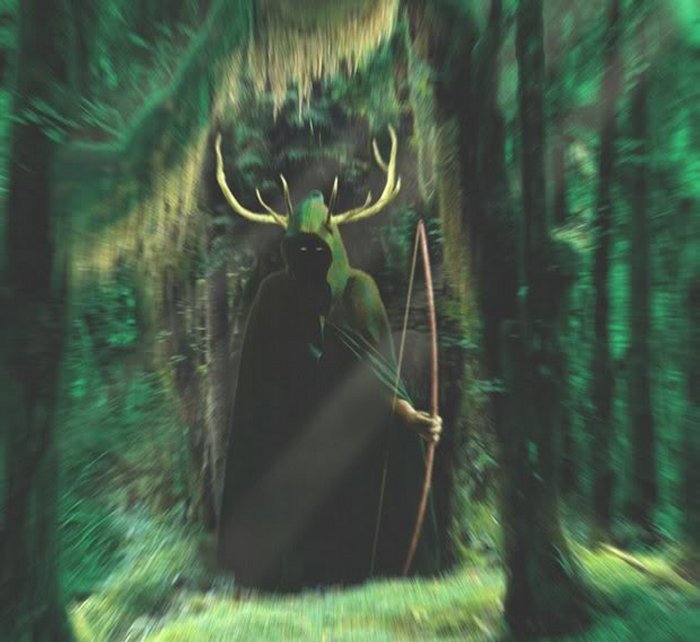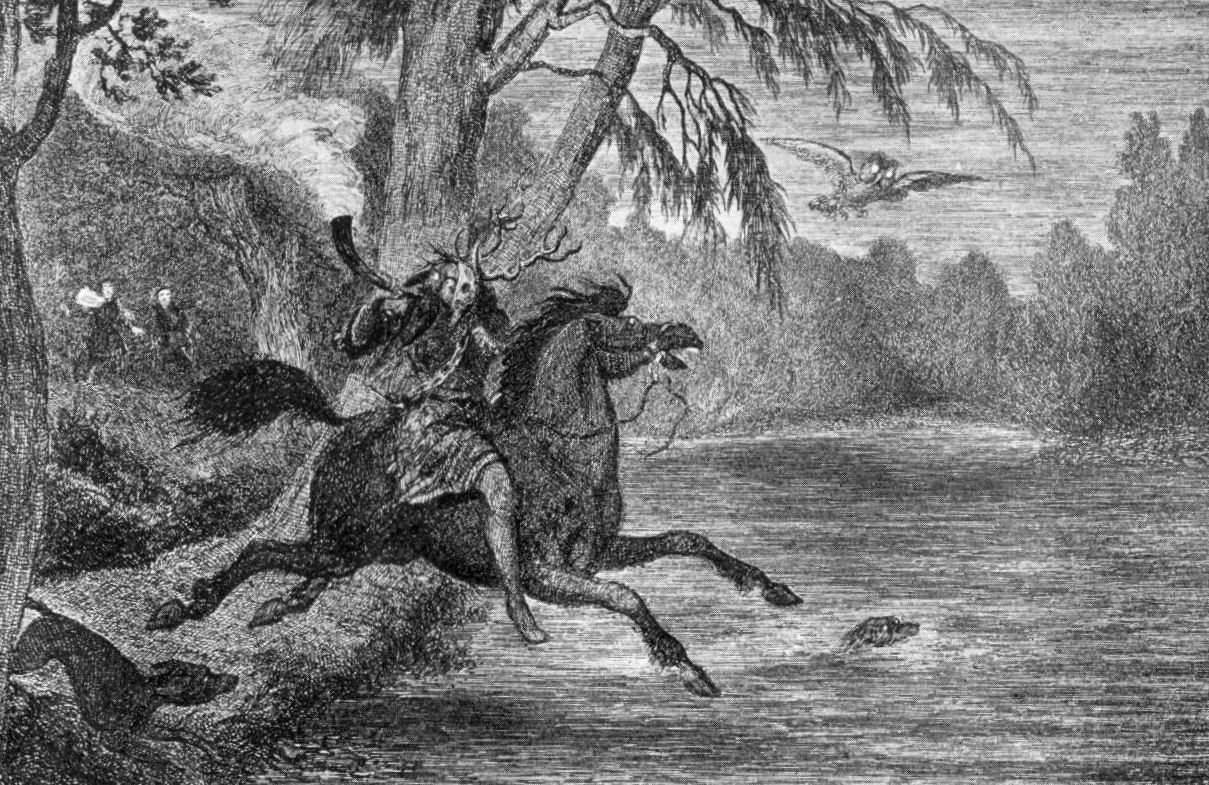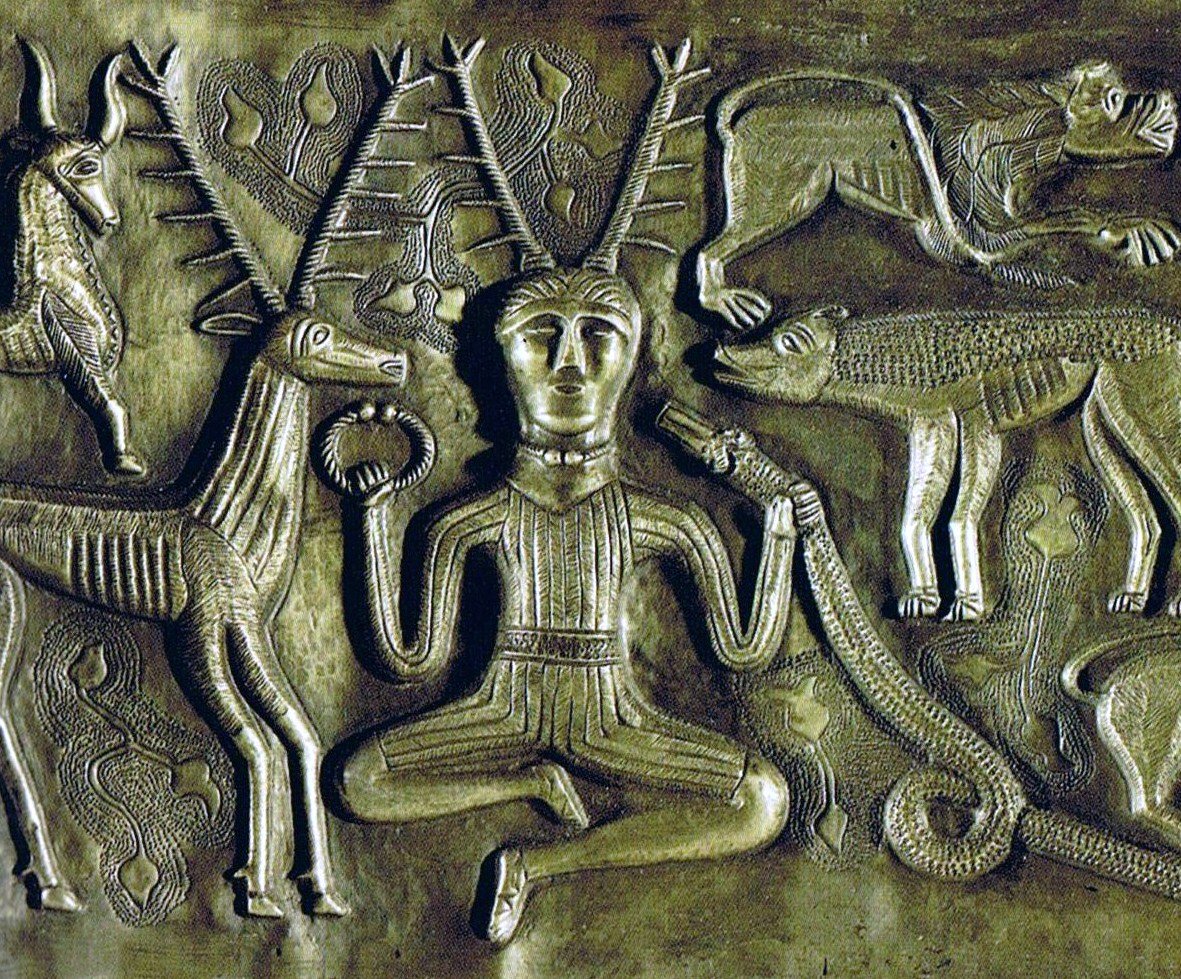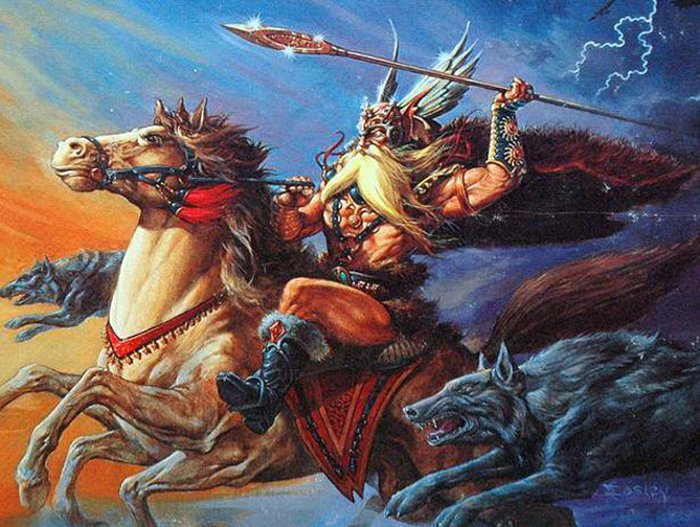Herne The Hunter – The Horned God And Lord Of The Forest In British Mythology
Ellen Lloyd - AncientPages.com - Little is known about a mysterious, mythical creature called Herne the Hunter who was said to reside in Windsor Forest and Great Park in the English county of Berkshire.
The original source for many of the tales told of Herne remains unknown. Herne the Hunter was mentioned by William Shakepeare who described him as "a spirit" and "sometime a keeper … in Windsor forest" who is seen to "walk round about an oak, with great ragged horns" at midnight during winter-time.
The Merry Wives of Windsor’ : William Shakespeare
‘There is an old tale goes, that Herne the hunter,
Sometime a keeper here in Windsor forest,
Doth all the winter time at still midnight,
Walk around about an oak, with great ragg’d horns;
And there he blasts the tree, and takes the cattle;
And makes milch-kine yield blood, and shakes a chain
In a most hideous and dreadful manner.’
The Merry Wives of Windsor : William Shakespeare
‘Why, yet there want not many, that do fear
In deep of night to walk by this Herne’s oak.’
Herne the Hunter in British Mythology
Is there a true story behind the legend of Herne the Hunter? There are several versions of an old tale revealing the faith of Herne, who was a huntsman employed by King Richard II.
Soon some men became jealous of his status and accused him of poaching on the King's land. Falsely charged with treason, Herne became an outcast among his former friends. Legend tells that in despair, he hung himself from an oak tree which later became known as Herne's Oak.
There is also another version of the story. According to which Herne was fatally wounded while saving King Richard from a charging stag. He was miraculously cured by a stranger, who tied the antlers of a dead stag to the dying man's brow. The stranger demanded in payment all Herne's skill in venery. Crazed by the loss of that skill in the craft he loved, Herne fled to the forest, and hanged himself, again from the oak tree. However, every night he rides once more leading a spectral hunt, chasing the game of Windsor Forest.
On August 31 1863 the famous Windsor Oak fell from natural causes but was soon replaced by a new young Oaktree by Queen Victoria on the same spot.
Why was Herne the Hunter called Lord of the Forest?
In the area around Berkshire, Herne is depicted wearing the antlers of a great stag. He is considered a great hunter who possessed divine skills. Herne's antlers connect him to the deer, which was given a position of great honor. Legends tell that he carried a great horn and a wooden bow, riding a mighty black horse and accompanied by a pack of baying hounds. If someone crossed his path, they were swept up in it, and often taken away, destined to ride with him for eternity.
Herne with his steed, hounds and owl, observed by the Duke of Richmond and the Earl of Surrey, in Harrison Ainsworth's Windsor Castle, illustrated by George Cruikshank, c.1843.
Encountering Herne the Hunter is a bad omen, especially to the royal family. According to local legend, Herne only appears in Windsor Forest when needed, such as in times of national crisis.
Was Herne the Hunter Cernunnos, the Celtic horned god or the Norse god Odin?
There many ancient accounts of people and gods with horns. Horns represent the primal power of nature, express the unstoppable power and the majesty and throughout human history, horns have been synonymous with this strength.
The antlered god Cernunnos, whose cult is most widely attested, is usually represented with the horns of a ram or a deer, squatting on the ground, and his posture indeed recalls that of the Buddha. with a humanoid body in Celtic myth.
See also:
Orang Bunian: Mysterious Invisible Whistle People Living In Forests In Malay Folklore
Forest In Ancient Beliefs: Powerful Realm Of Good And Evil, Ghosts, Gods And Monsters
Gilgamesh And Enkidu Undertake A Dangerous Mission To Hunt Forest Giant Humbaba
There is no one particular myth concerning him, for only his image remains. The 'cer' part of his name, relating to his antlers, means ‘horned’. He is found mainly in sculpted statues and reliefs from ancient Gaul (modern France), but the clearest image is found on the silver votive cauldron, the Gundestrup Cauldron, which is described in one of our articles.
Horned animal deities played a significant role in the early civilizations of the ancient world, where the power and mysteries of the Sumerian bull gods of Sumeria and the Egyptian ram and bull gods of were transmitted into the civilizations of the ancient world.
Cernunnos, Celtic horned god. Image credit: Wikipedia
The Windsor Forest area has a heavy Saxon influence. In the Early Middle Ages, Windsor Forest came under the control of the pagan Angles who worshiped their own pantheon of gods, including Woden, who was sometimes depicted as horned, and whose Norse equivalent Odin rode across the night sky with his own Wild Hunt and hanged himself on the world tree Yggdrasil to learn the secret of the runic alphabet. It has been suggested that the name Herne is derived from the title Herian, a title used for Woden in his role as leader of fallen warriors.
Dr. Margaret Alice Murray, (1863-1963), who was a prominent British Egyptologist and anthropologist wrote in her book God of the Witches that Herne is a manifestation of Cernunnos, the Celtic horned god. The facts that the existence of Herne the Hunter has only been claimed in Berkshire, and not in the rest of the Windsor Forest area, suggests that Herne should be considered a "localized" god and could indeed be the Berkshire interpretation of Cernunnos.
Written by: Ellen Lloyd AncientPages.com
Copyright © AncientPages.com & Ellen Lloyd All rights reserved. This material may not be published, broadcast, rewritten or redistributed in whole or part without the express written permission of AncientPages.com and Ellen Lloyd
More From Ancient Pages
-
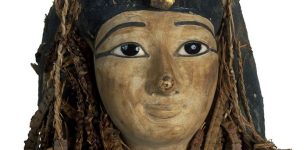 Mummy Of Pharaoh Amenhotep I Digitally Unwrapped For The First Time In 3,000 Years
Archaeology | Dec 30, 2021
Mummy Of Pharaoh Amenhotep I Digitally Unwrapped For The First Time In 3,000 Years
Archaeology | Dec 30, 2021 -
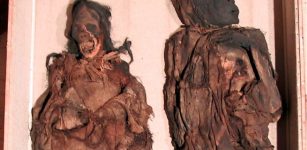 Scientific ‘Detective Work’ With South American Mummies Reveals They Were Brutally Murdered
Archaeology | Sep 9, 2022
Scientific ‘Detective Work’ With South American Mummies Reveals They Were Brutally Murdered
Archaeology | Sep 9, 2022 -
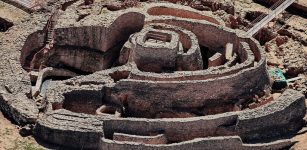 Motilla del Azuer: Impressive And Unusual 3,200-Year-Old Fortress
Featured Stories | Nov 13, 2018
Motilla del Azuer: Impressive And Unusual 3,200-Year-Old Fortress
Featured Stories | Nov 13, 2018 -
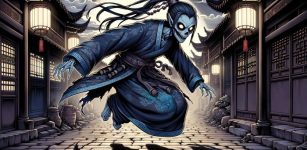 Jiangshi – Terrifying Vicious Ancient Chinese Vampire In Disguise
Chinese Mythology | Jun 11, 2020
Jiangshi – Terrifying Vicious Ancient Chinese Vampire In Disguise
Chinese Mythology | Jun 11, 2020 -
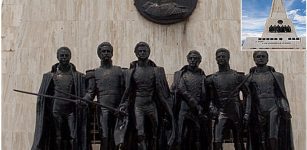 On This Day In History: Battle Of Ayacucho Was Fought In Peru – On Dec 9, 1824
News | Dec 9, 2016
On This Day In History: Battle Of Ayacucho Was Fought In Peru – On Dec 9, 1824
News | Dec 9, 2016 -
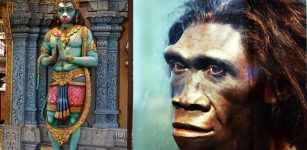 Hindu Monkey God Hanuman May Have Been Homo Erectus – Scientist Says
Hindu Mythology | Mar 3, 2020
Hindu Monkey God Hanuman May Have Been Homo Erectus – Scientist Says
Hindu Mythology | Mar 3, 2020 -
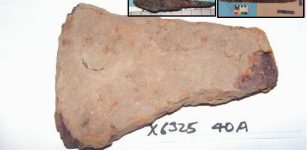 Spearheads – The Chemical Fingerprint Of Viking Weapons – New Study
Archaeology | Feb 18, 2022
Spearheads – The Chemical Fingerprint Of Viking Weapons – New Study
Archaeology | Feb 18, 2022 -
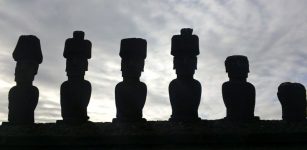 Ancient DNA Sheds New Light On Easter Island Mystery
Archaeology | Oct 13, 2017
Ancient DNA Sheds New Light On Easter Island Mystery
Archaeology | Oct 13, 2017 -
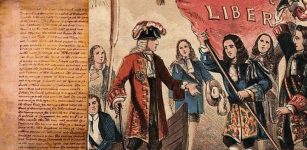 Bill Of Rights 1689 – Enormous Historical Moment In English History
Ancient History Facts | May 6, 2019
Bill Of Rights 1689 – Enormous Historical Moment In English History
Ancient History Facts | May 6, 2019 -
 Evidence Of Cosmic Catastrophe 12,800 Years Ago – Earth Collided With Fragments Of A Comet
Archaeology | Feb 2, 2018
Evidence Of Cosmic Catastrophe 12,800 Years Ago – Earth Collided With Fragments Of A Comet
Archaeology | Feb 2, 2018 -
 Unlocking The Secrets Of Lost Prehistoric Land Hidden Beneath The Sea
News | Sep 8, 2015
Unlocking The Secrets Of Lost Prehistoric Land Hidden Beneath The Sea
News | Sep 8, 2015 -
 On This Day In History: Ceiling Of The Sistine Chapel, Painted By Michelangelo, Is Shown Publicly For The First Time – On Nov 1, 1512
News | Nov 1, 2016
On This Day In History: Ceiling Of The Sistine Chapel, Painted By Michelangelo, Is Shown Publicly For The First Time – On Nov 1, 1512
News | Nov 1, 2016 -
 DNA Unravels Mysteries Of The Crannogs, Ancient Artificial Islands Older Than Stonehenge
Archaeology | Oct 10, 2022
DNA Unravels Mysteries Of The Crannogs, Ancient Artificial Islands Older Than Stonehenge
Archaeology | Oct 10, 2022 -
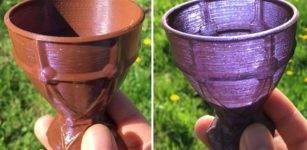 Ancient Nanotechnology Knowledge Inspired A Modern 3D-Printable ‘Lycurgus Cup’
Ancient Technology | Mar 13, 2019
Ancient Nanotechnology Knowledge Inspired A Modern 3D-Printable ‘Lycurgus Cup’
Ancient Technology | Mar 13, 2019 -
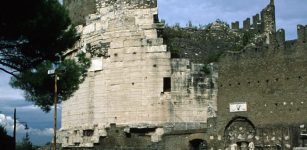 Unique Tomb Of Roman Noblewoman Caecilia Metella Reveals Secrets Of Ancient Concrete Resilience
Archaeology | Oct 14, 2021
Unique Tomb Of Roman Noblewoman Caecilia Metella Reveals Secrets Of Ancient Concrete Resilience
Archaeology | Oct 14, 2021 -
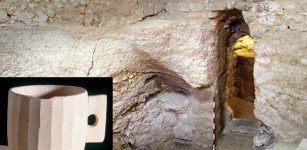 Childhood Home Of Jesus May Have Been Found Underneath The Sisters Of Nazareth Convent
Archaeology | Nov 24, 2020
Childhood Home Of Jesus May Have Been Found Underneath The Sisters Of Nazareth Convent
Archaeology | Nov 24, 2020 -
 Two 1,800-Year-Old Sarcophagi Of Wealthy People Accidentally Found At Ramat Gan Safari Park
Archaeology | Feb 22, 2021
Two 1,800-Year-Old Sarcophagi Of Wealthy People Accidentally Found At Ramat Gan Safari Park
Archaeology | Feb 22, 2021 -
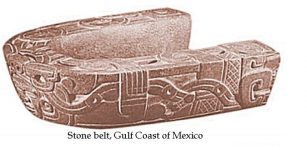 Millennia Old Ceremonial Stone Belt And Maya Pok-A-Tok Ball Game
Ancient Traditions And Customs | Nov 28, 2017
Millennia Old Ceremonial Stone Belt And Maya Pok-A-Tok Ball Game
Ancient Traditions And Customs | Nov 28, 2017 -
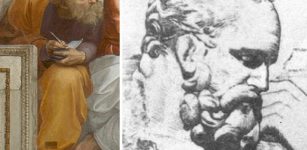 Anaximander Of Miletus: Father Of Cosmology, Pre-Socratic Greek Philosopher Who Discovered Equinox, Solstices And Gnomon
Featured Stories | Mar 7, 2019
Anaximander Of Miletus: Father Of Cosmology, Pre-Socratic Greek Philosopher Who Discovered Equinox, Solstices And Gnomon
Featured Stories | Mar 7, 2019 -
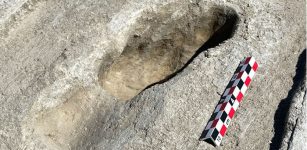 88 Ice Age Human Footprints In Utah Desert Shed New Light On Ancient Americans
Archaeology | Aug 11, 2022
88 Ice Age Human Footprints In Utah Desert Shed New Light On Ancient Americans
Archaeology | Aug 11, 2022

